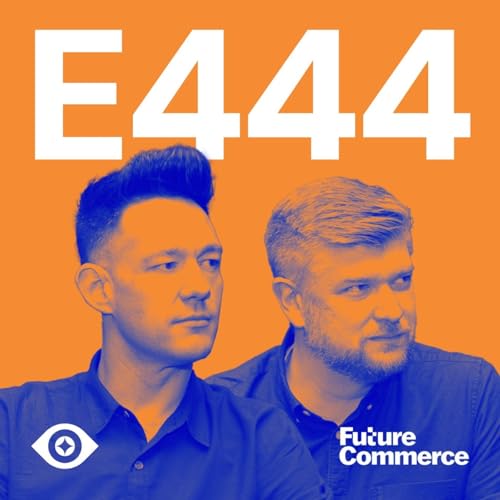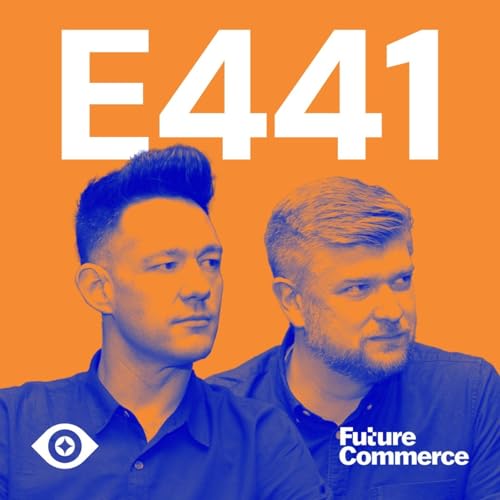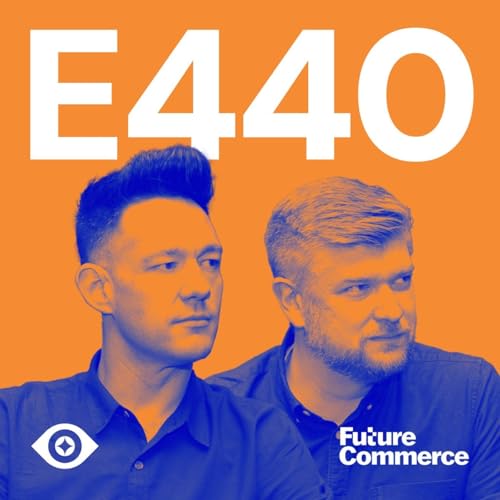Join us at SoCom 2026, the Social Commerce Conference. February 26 in Venice Beach and save 20% with code FCSC2026
Damon Berger, Head of Consumer Digital Engagement at Gap Inc., joins the show to share the strategy behind the brand's comeback. He unpacks the playbook for rebuilding an iconic brand, why it worked for Barbie, and why creator capital is the new north star. Plus, he reveals how Gap moved from "chasing relevance” to driving it, and why brand distinction is the new survival strategy against the sea of AI slop.
Gap is Back, Baby.Key Takeaways:- Creators are the cultural conduit, building conversational capital through authentic audience relationships
- Gap's KATSEYE campaign sparked participation, not just viewership, enabling fans to own the moment
- Purpose-driven brands live their values quietly rather than preaching them publicly
- Brand distinction becomes a survival strategy when 50% of internet traffic is bots
- Get Blue partnership scales Gap's influence to address global water access for 200M people
Damon Berger [03:33]: "Creators are the conduit to what is kind of cool out in the world...the idea for us is that we have a variety of relationships with them."
Damon Berger [12:14]: "That was really why one of the reasons that it was so popular and shared and viral...people started taking that video and doing all their own dances and doing their own interpretations to it and expressing themselves and joining a larger conversation."
Damon Berger [15:14]: "We were just being ourselves. We were just living our own brand values, where we believe in the value of diverse voices. We believe in people being themselves no matter what."
Damon Berger [29:26]: "In the sea of sameness and the sea of AI slop and all of these worlds of not really knowing who you're buying from…[brand distinction] is what people care about, and that's how we've won over the last couple of years."
In-Show Mentions:- Gap's "Better in Denim" Campaign - Viral campaign featuring "Milkshake" by Kelis
- Get Blue Initiative - Partnership with Gap Inc., Amazon, Starbucks, and Ecolab
Associated Links:- Check out Future Commerce on YouTube
- Check out Future Commerce Plus for exclusive content and save on merch and print
- Subscribe to Insiders and The Senses to read more about what we are witnessing in the commerce world
- Listen to our other episodes of Future Commerce
Have any questions or comments about the show? Let us know on futurecommerce.com, or reach out to us on Twitter, Facebook, Instagram, or LinkedIn. We love hearing from our listeners!
Hosted by Simplecast, an AdsWizz company. See pcm.adswizz.com for information about our collection and use of personal data for advertising.
 51 mins
51 mins Feb 25 202649 mins
Feb 25 202649 mins 26 mins
26 mins 53 mins
53 mins 44 mins
44 mins 35 mins
35 mins 58 mins
58 mins![[STEP BY STEP] The Spend Behind the Scale](https://m.media-amazon.com/images/I/41mr7tK-7NL._SL500_.jpg) Jan 29 202630 mins
Jan 29 202630 mins
